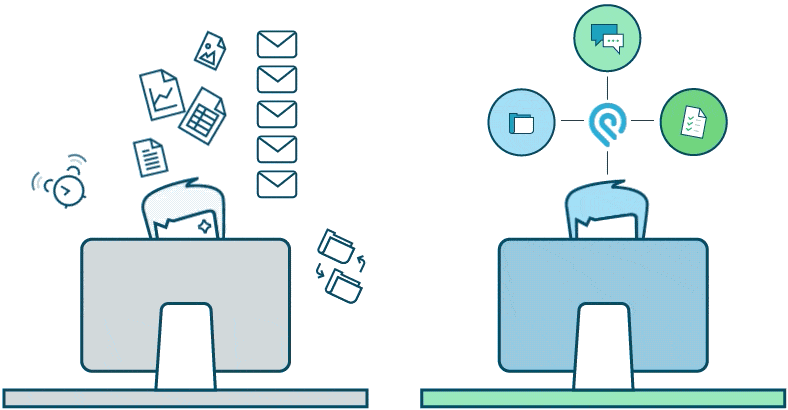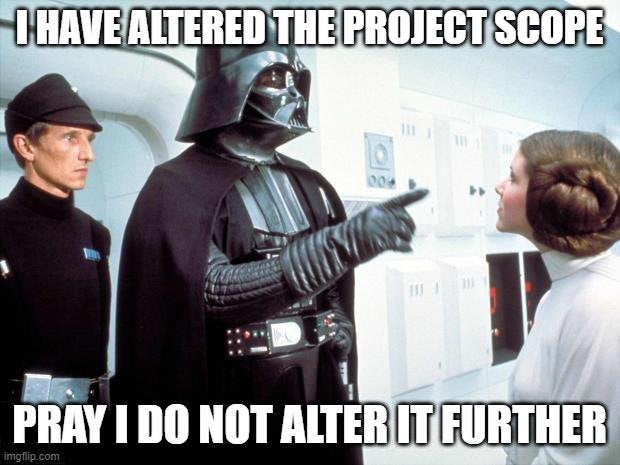What Is Agile Project Management?
100% of the time.
We believe everybody should be able to make online purchases with confidence. And while our website doesn’t feature every test prep company or review course in the universe, we’re proud that the advice we offer and the information we provide is accurate, truthful, objective - and entirely free.
So how do we actually make money? It’s simple, our partners compensate us. While this may influence which products we review and write about, and where they show up on the site, it absolutely does not influence our recommendations or guidance, which are formed by hundreds of hours of research and analysis. Check out our partners here.
What’s the bottom line? We’re on your team and are passionate about helping you achieve your career goals, even if it means we don’t make a dime.

Anything you read online will describe agile project management as a methodology that emphasizes iterative development, team collaboration, and customer involvement.
But what does this really mean?
In the simplest terms, agile methodologies are approaches to project management that try to simplify things and improve overall processes.

Agile has a few main focuses:
- The product
- Flexibility
- Communications
- Expertise of collaborators
Agile project management methods began in the software development world but have since been adopted in other industries as well.
An agile project manager is responsible for leading a team through the agile development process. This includes working with the team to set goals, create a project timeline, and track progress.
The agile approach is designed to be flexible and adaptable. Agile project managers need to be able to adjust their plans based on feedback and changes quickly.
Following the 12 principles outlined in agile methodology allows project managers to stay on track and get things done.
Key Principles of Agile Project Management
Agile project management can be seen as a framework that helps teams produce high-quality products faster.
How does this happen?
Agile processes assist in breaking down work into smaller pieces, called sprints, and delivering them in a shorter timeline. Agile project management also emphasizes customer collaboration with stakeholders and developers. Agile methodologies also push using customer feedback throughout the development process.

Let’s talk about four key principles of agile project management that teams need to really get to succeed.
1. Customer satisfaction is the highest priority.
2. Deliver working software frequently in short sprints.
3. Implement close collaboration between stakeholders and developers
4. Use feedback from customers to guide development.
Applying these agile project management methods can help teams move faster and produce higher-quality products.
However, it is important to note that agile project management is not a silver bullet and will not work for every project. It is best suited for complex projects requiring close collaboration between stakeholders and developers.
When applied correctly, agile project management can help teams deliver better results in a shorter timeframe.
Myths of Agile Project Management
To really get what agile project management is, you need to know what it’s not. A few myths about agile project management need to be debunked.
1. Agile project management is only for a project manager involved in software development
This is not true! As Agile 101 explains, it is more than frameworks like Scrum or Extreme programming. Agile project management methodology can be used for any type of project, including construction, marketing, and product development.
2. Agile project management is only for small teams
Again, this is not true! Agile project management practices can be used by teams of all sizes, from small startups to large enterprises. The benefits afforded to agile project teams can be seen from the bottom to the top.
Agile principles hold that the best architectures, requirements, and designs emerge from self-organizing teams. Team has nothing to do with size.
3. Agile project management is only for projects with a lot of uncertainty
While agile project management does help with managing uncertainty, it can also be used for projects with more predictable outcomes.
In fact, predictability is key!
Agile processes are meant to promote sustainable development. This means that the sponsors, developers, and users should be able to maintain a constant pace indefinitely.
4. Agile project management is only for projects that are behind schedule
Agile project management can be used for projects that are on track or ahead of schedule. It can help teams move faster and achieve better results.
After all, agile is all about technical excellence.
5. Agile project management is only for projects with a fixed scope

False. Agile project management can be used for projects with a fixed scope as well as for projects with a variable scope.
Now, that’s not to say a shorter timescale isn’t preferred.
However, agile methodologies say that changing requirements should be welcomed even late in development.
Why is this?
They can lead to the customer’s competitive advantage.
Why Is Agile Important for Startups?
As we mentioned that agile project management is a more flexible and collaborative environment for project management with a higher level of engagement for project stakeholders.
A key factor for startups is the reduced time to market. Agile projects help startups reach their goals promptly by focusing on the most important aspects of their products and executing them with minimal effort.
This is a goal of all businesses, right?
Key Benefits of Using Agile Practices in Project Management
This brings us to an important question.
Why should project managers commit to learning agile project management methodologies, especially if they are trained in other processes?
There are a few reasons.
Flexibility
The core idea behind agile project management is continuous change. As stakeholders’ needs and requirements change, the project team can adapt to those changes and respond to them quickly.
Engagement
Agile teams are highly engaged in project activities. They are also engaged with each other. This high level of engagement translates into more committed employees and more productivity.
Focus
Agile projects focus on what is most important. They also focus on producing something valuable. They do not spend time on tasks that are not central to their goals.
Retrospectives
Teams conduct regular retrospectives to reflect on their activities and engage in continuous improvement. It also helps them see what they have done well and what needs to be improved on the next project.
Other Advantages of Agile Practices
Agile project management aims to deliver software, products, or fill-in-the-blank that meets the customer’s needs and is of high quality.
Some advantages of this project (especially when compared to traditional project management methods) include the following:
Increased Customer Satisfaction

Agile project management emphasizes collaboration with the customer. This ensures that the software being developed meets the customer’s needs.
Improved Quality
Agile practices help improve the quality of the software being developed by ensuring defects are found and fixed early in the development process.
Increased Transparency
Agile project management is based on transparency and communication. This allows all stakeholders to see the project’s progress and provide input if needed.
Faster Delivery
Agile project management focuses on delivering working software quickly. This allows businesses to get new features and functionality into their hands faster.
Get the Leverage You Need with Resources
With so many benefits of agile project processes, it’s hard to understand why all teams aren’t using these principles to improve their project lifecycle.
Simply put, agile management can be confusing and a little intimidating.
If you want to learn more about how to use agile practices in your project management, then you need to check out Crush the PM Exam partner resources.

Their courses will teach you everything you need to know about agile project management, from the basics of the approach to advanced topics. With hours of video lectures and practice exams, you’ll have everything you need to get started with agile project management.
FAQs
Agile project management is an iterative and incremental approach to project management, typically characterized by short development cycles, known as sprints, and a heavy emphasis on stakeholder collaboration and feedback.
Agile methodology is a project management approach that emphasizes continuous iteration and improvement, as well as customer/stakeholder involvement, in order to deliver successful projects.
The main difference between agile and project management is the emphasis on iterative development and customer/stakeholder involvement in agile methodology, as opposed to the more linear traditional approach of project management.
There is no single answer to this question, as the appropriateness of using agile project management will depend on the specific project and organization.
Agile project management is an iterative and incremental approach to managing projects. It emphasizes flexibility, continual improvement, and customer satisfaction. Waterfall project management is a traditional, sequential approach to managing projects. It emphasizes rigidity, stability, and predictability.
Bryce Welker is a top-notch expert in business and education. As a dynamic speaker, expert blogger, and regular contributor to Forbes, Inc.com, Business.com, AccountingToday.com, and Entreprenuer.com, he has helped readers boost their careers with his extensive knowledge. With a track record of founding over 20 innovative test prep websites, Bryce has helped countless students and professionals pass their certification exams and achieve their dreams. Bryce Welker is the ultimate guide to help you succeed in your career or education.

- PMP Exam Cost: Everything You Need to KnowMay 2024 - 12:00 am
- Why Conflict is Essential to Good Project ManagementMay 2024 - 12:00 am
- PMTraining ReviewMay 2024 - 12:00 am
- Brain Sensei PMP Review 2026 [Prep Course, Coupons, and...May 2024 - 12:00 am
